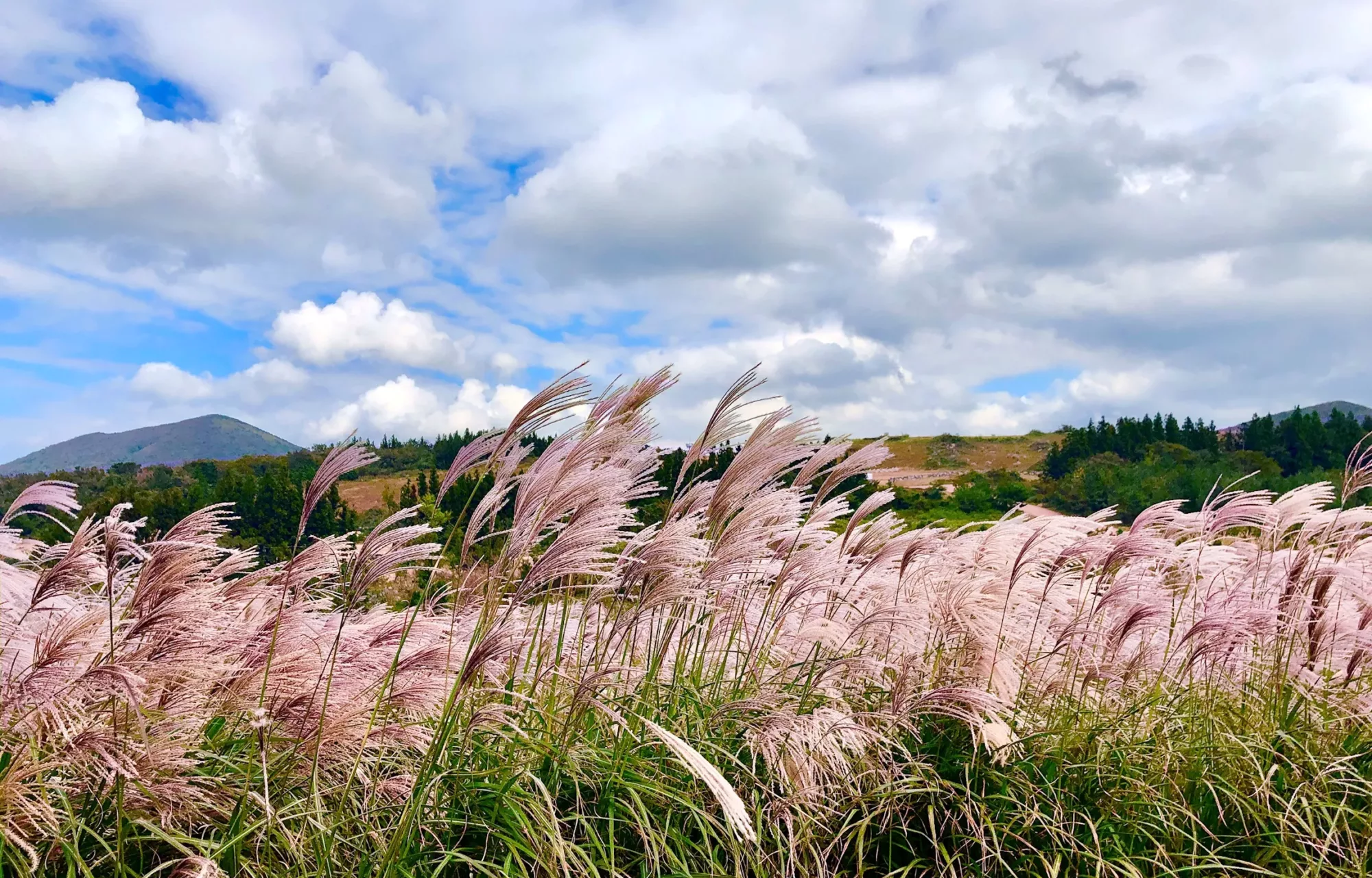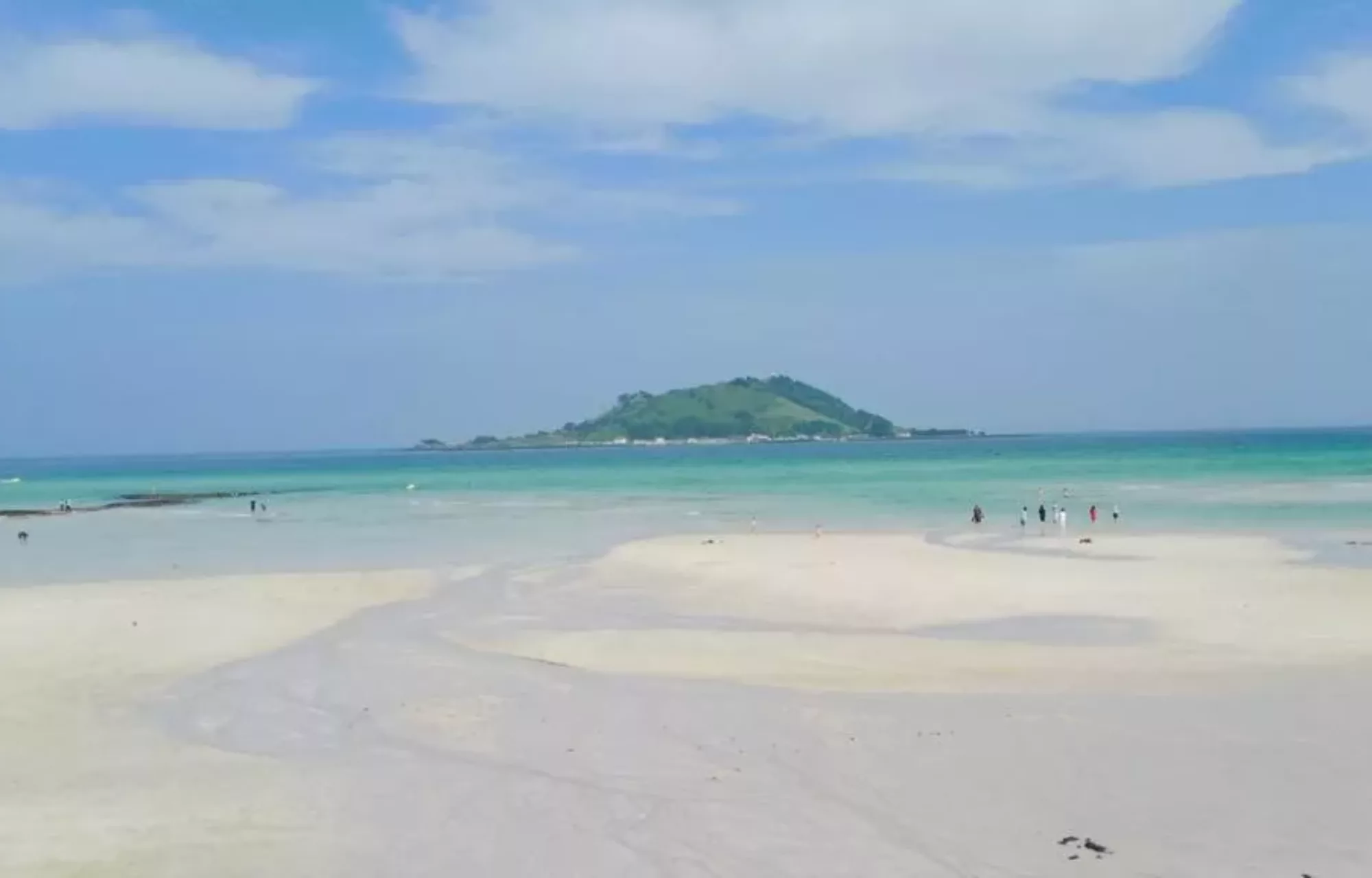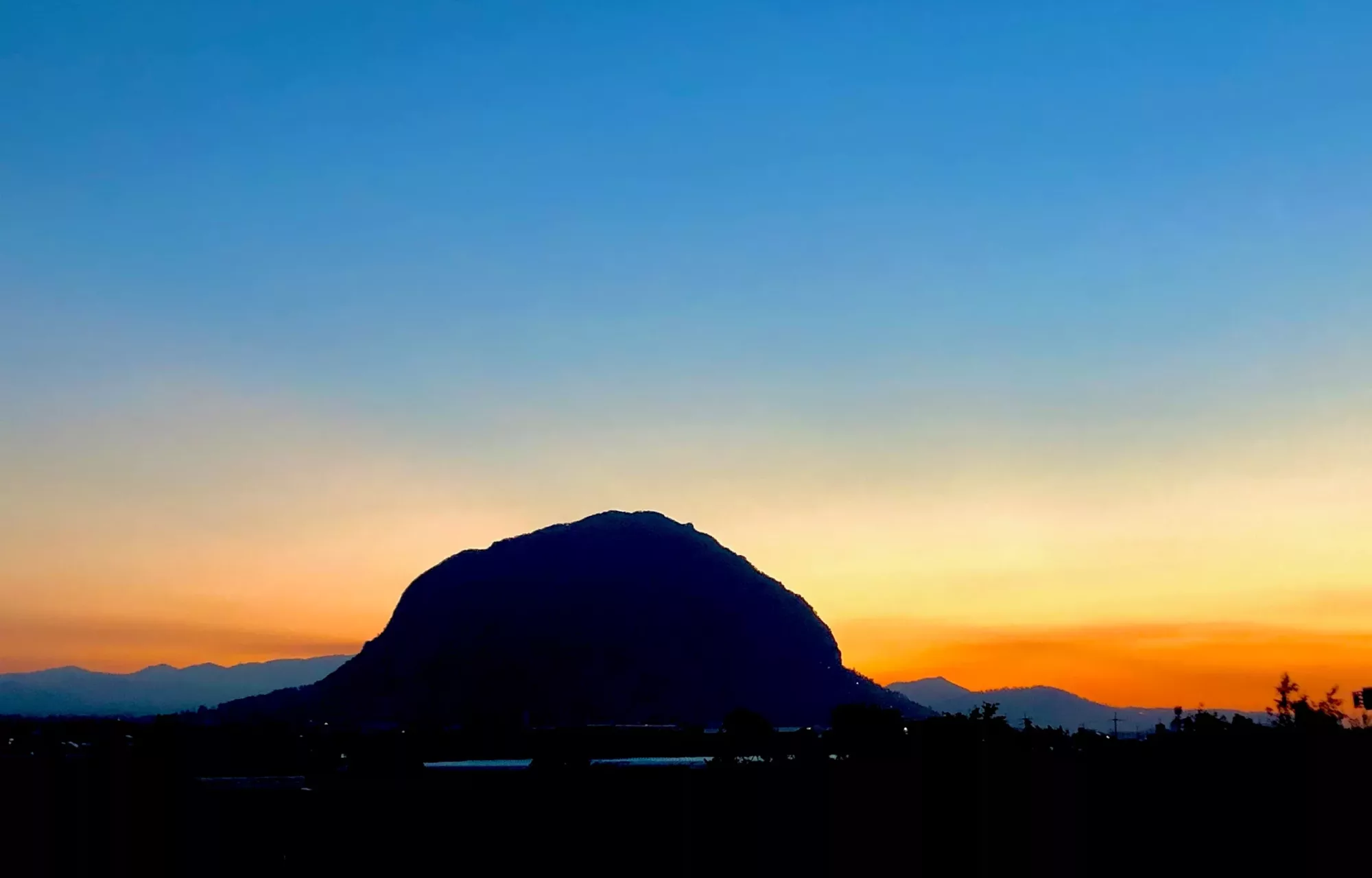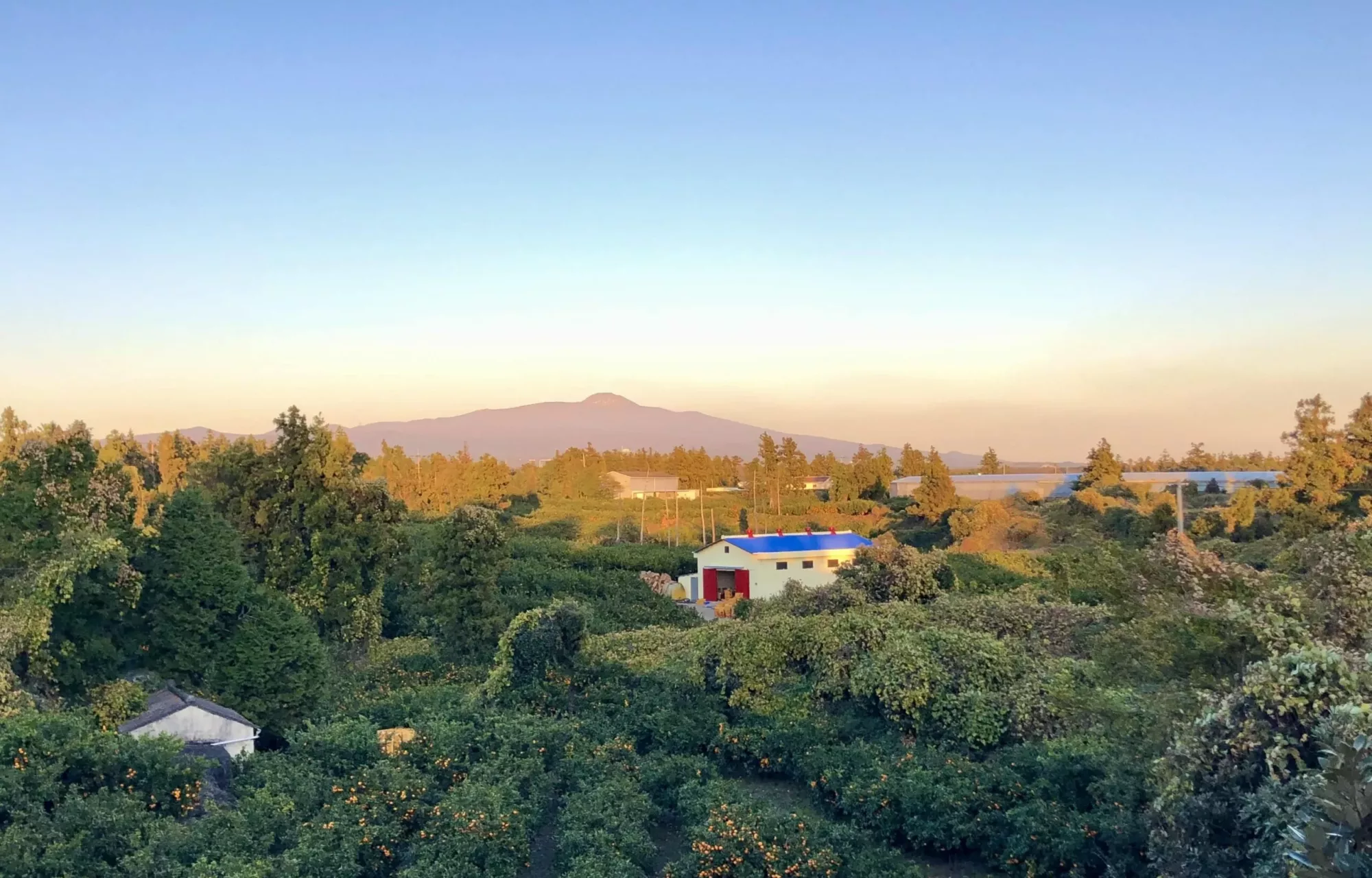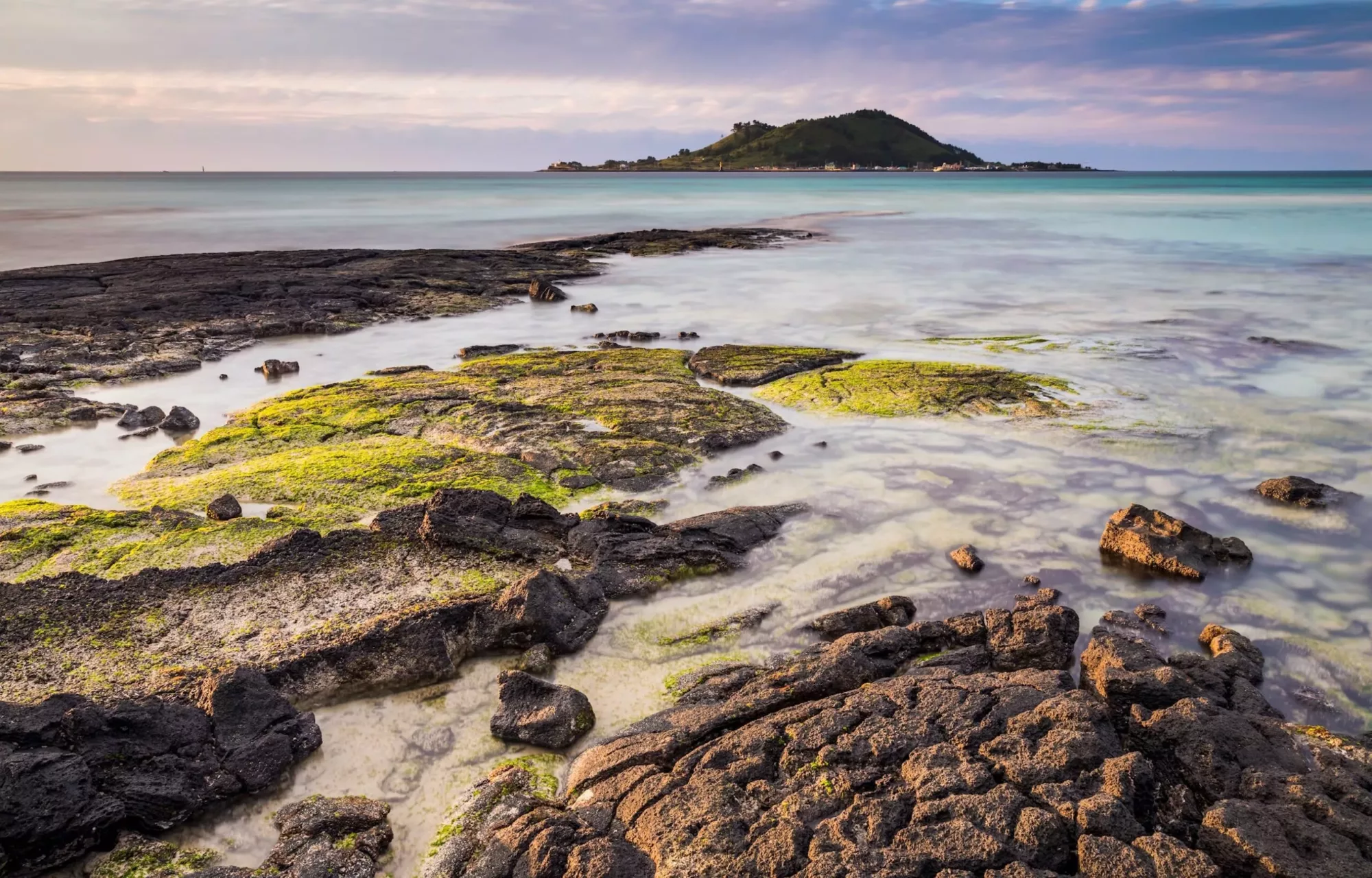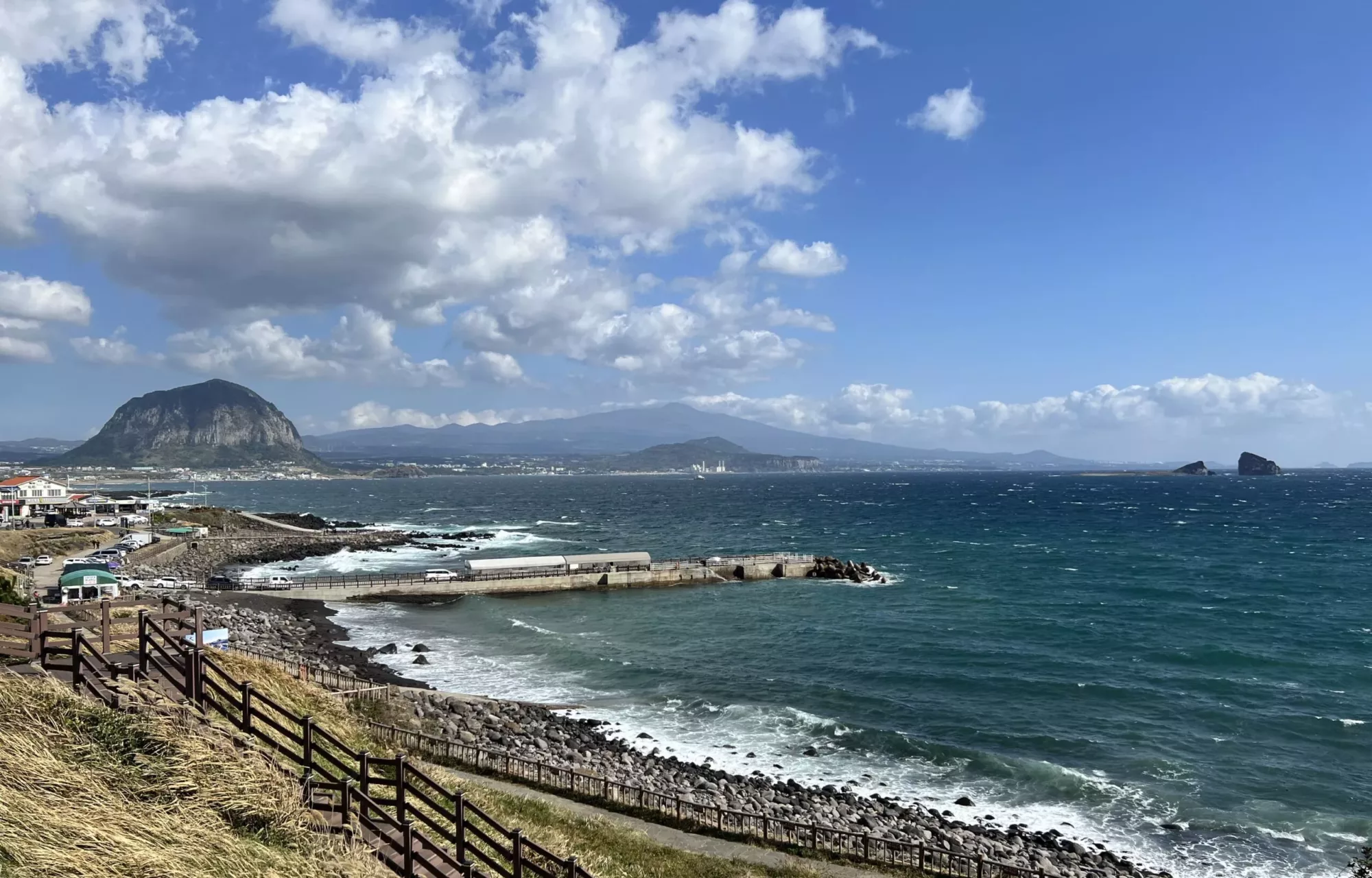Jeju has been recognised by UNESCO as a world heritage site and it is easy to see why.
Halla Mountain, an inactive volcano, stands tall at the centre of the island, looking over hundreds of small ‘oreums’ (small volcanic cones) towards the breathtaking coast which is a combination of beautiful palm lined sandy beaches or rugged black lava rock formations.
The island is located south of the mainland of Korea and is under an hour’s flight to Seoul and Busan. With its own international airport with flights to China, Taiwan, Singapore, Japan and Hong Kong it makes for an excellent travel hub for those who want to explore further afield.
Jeju has four distinct climates, spring is colourful with many flowers in bloom and a pleasant temperature, summers are long and very warm, cooling for autumn as the island bursts into golden colours and a mild winter, with occasional snow.
For lovers of the great outdoors, the island provides ample opportunities for cycling and hiking, as well as exploring, but with the airport, Jeju City (the island’s busy capital) and Seogwipo City all under an hours drive from the campus – Jeju residents have the best of both worlds.
Jeju is steeped in history – from traditional villages, markets and temples to the modern – art galleries, museums and amusement parks, and the natural wonders such as the lava tunnels, it’s a home you’ll never tire of or forget.
The island is famous for its Haenyo divers and its abundance of tangerines! This culturally diverse, welcoming and incredibly safe island is very family friendly and if that wasn’t enough, for the foodies among us, Korean food and in particular, Jeju food is delicious!

